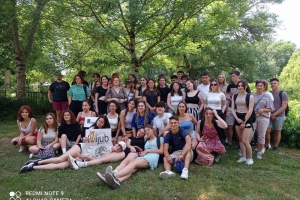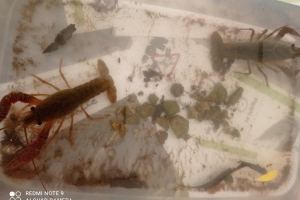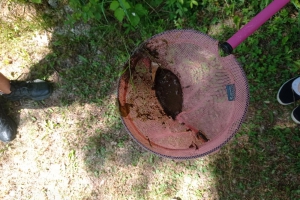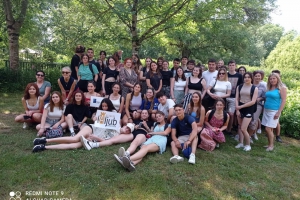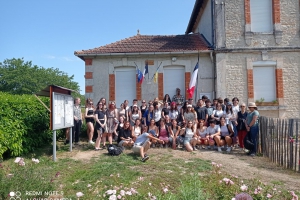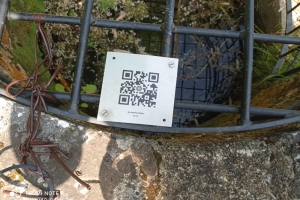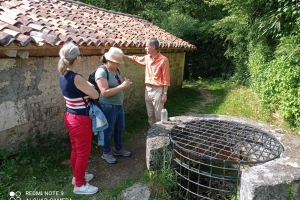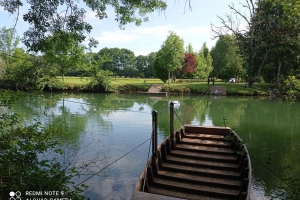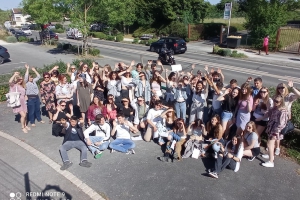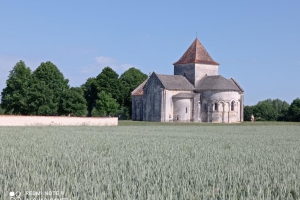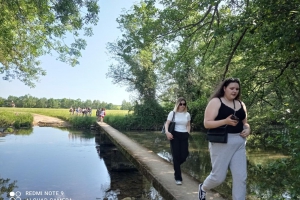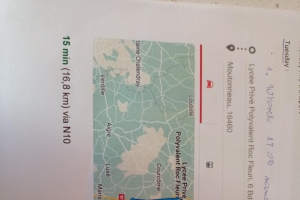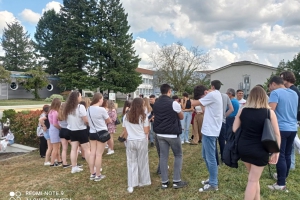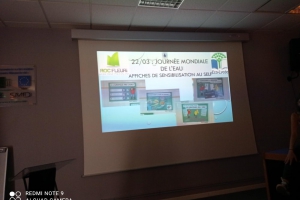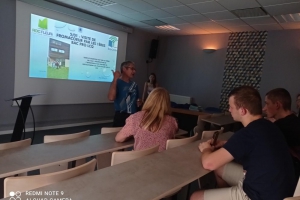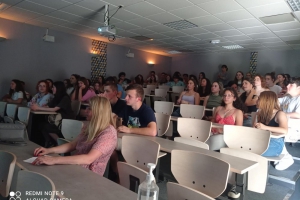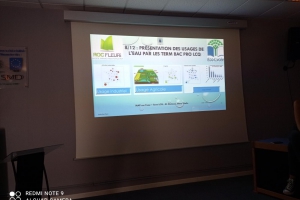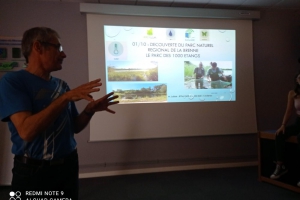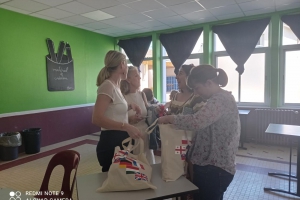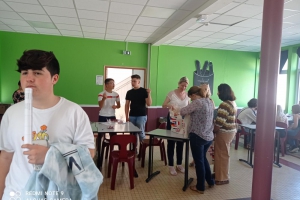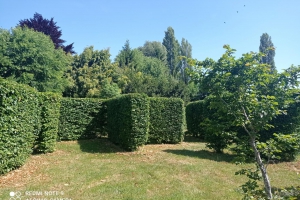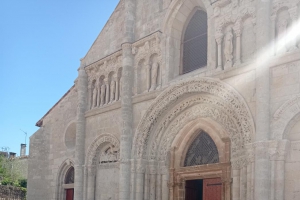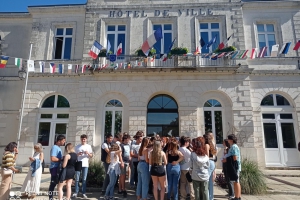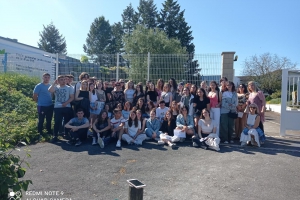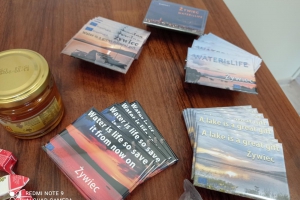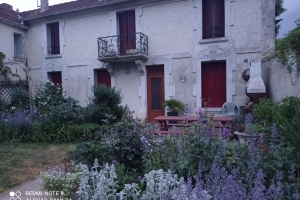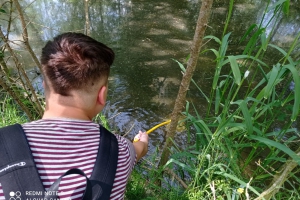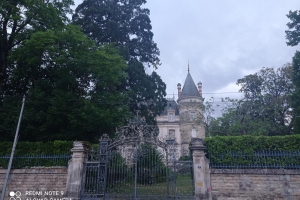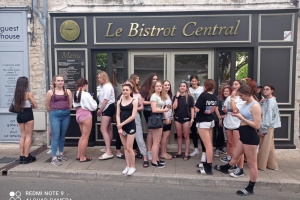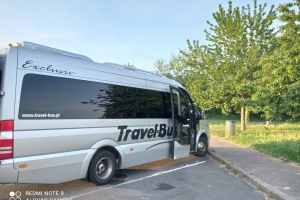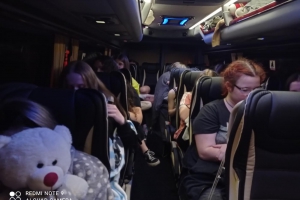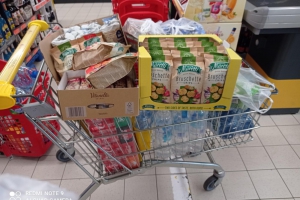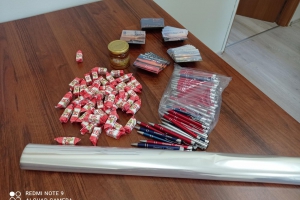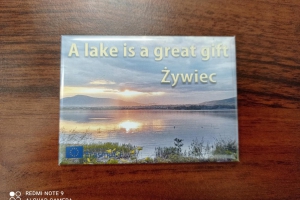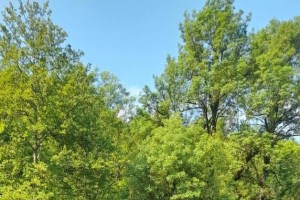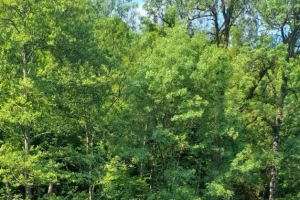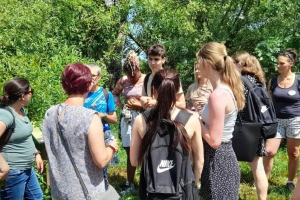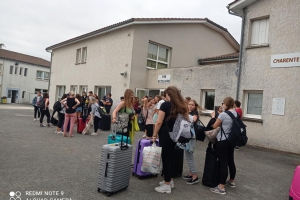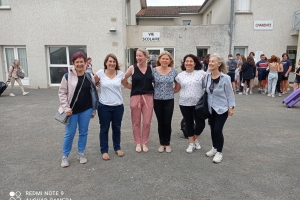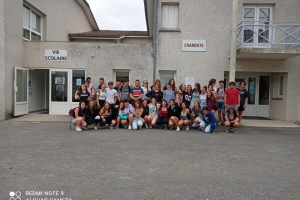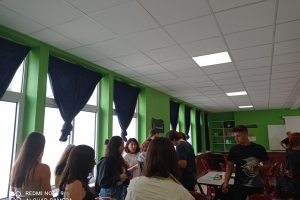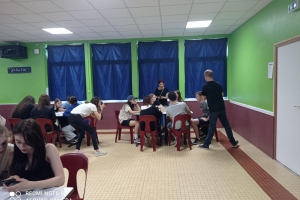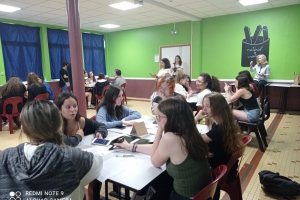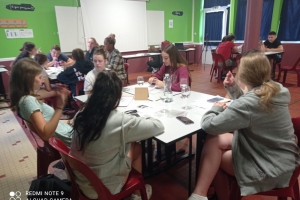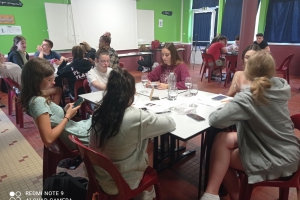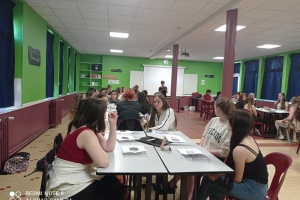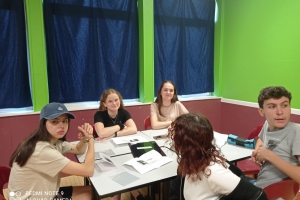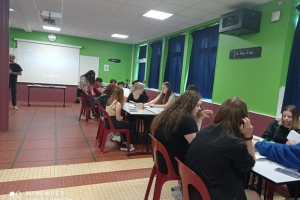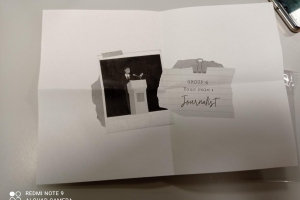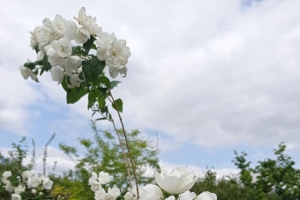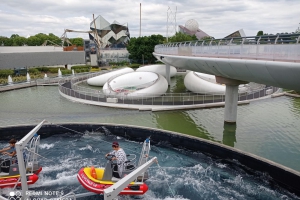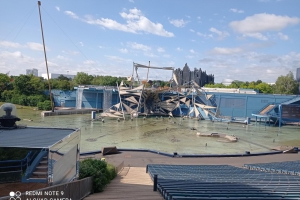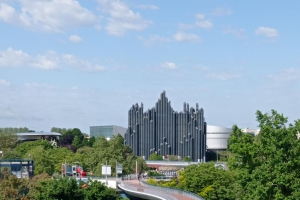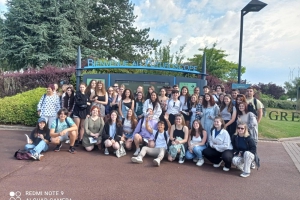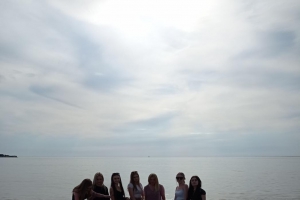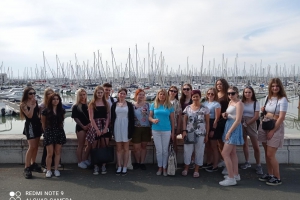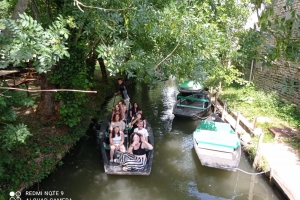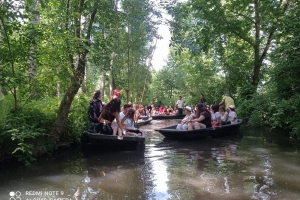The first group of students from schools in Poland and Spain performed the mobility to France, where the hosts were the teachers and students from Lycée Roc Fleuri in Ruffec. There were groups of 16 students from France, Poland and Spain what sums up to 48 students participating in the project during the mobility in France.
The students visited the school and were given the presentation on eco-school project using
a multimedia presentation. The visiting students and teachers were also given a tour around the school grounds during which some methods of agriculture and cultivation were presented. The students were given a tour around a host town Ruffec during which they learnt about the town history and its impact on sustainable development of the Charente region of France.
During their stay, the students and the teachers also watched the film „Demain” (tomorrow). It is globetrotting documentary that's focused on solutions to environmental issues and provides a comprehensive look at ways in which activists, organizers and everyday citizens are trying to make the world a better, greener, more sustainable place. While observing the project river Charente students had an opportunity to engage in geocaching using the app „Terra Aventura” and were also provided with a paper-sized roadmap, they had to solve the puzzles that allowed them to find the water treasure.
Besides the sightseeing the host town and the river Charente region, students also visited several places of interest connected thematically with the water project. First, there was the Water House in St Fraigne town. The town is bathed by many streams, rivers, marshes, springs, fountains and valleys. The different areas of the building are dedicated to water. The students watched a temporary exhibition on 'The cycle of water in our environment'. Later on, the projest group visited the museum in Coulon in the Marais Poitvein, which is a large area of marshland. Here, the students learnt about the history of the wetland, its flora and its fauna. While visiting the marshland, students had a canal boat trip in the green Venice and they listend to a story during a guided tour in traditional Marques. The guide gave a speech on this mysterious marshland, with its wealth of fauna, flora and traditions. Finally, the students visited the Futuroscope which is a French theme park based upon multimedia, cinematographic futuroscope and audio-visual techniques.
During the final day students participated in a workshop. Students worked in international groups. At first, they watched a video from which they learnt that there was no water on Earth /water disappeared/. Each group was given a different exercise to solve this problem, to bring water back to Earth and make it possibile for human body to survive without water. Students also made a scientific report for the politicians, described a mystical ceremonie, wrote an incantation or prayer, imagined a potion or mixture created various literary genres in Polish, French, Spanish and English. Then they presented their results in front of the camera.
Students gained a lot of knowledge concerning water in both global and local levels. The visits to the Water House, the region of Marais Poitvein and the Futuroscope gave them a lot of opportunities to learn about global water, its scarcity and the need of sustainable use. While sightseeing the banks of the river Charente and the marshlands of Marais Poitvein they had a chance to see and learn the middle course of the river which is important part of our project (Each river has three courses and each of the participating schools is situated at a different course – in Poland it is the upper course, the middle one is in France and the lower course is in Spain).
Summary
During the project, the students and their teachers concentrated on various topics connected with water, its scarcity on Earth and the need of sustainable use. They also focused on the middle course of the river, of which the Charente river flowing through the Cherente region is a very good example. They could see the typical features of the middle course such as meanders and ox-bow lakes. These are both results of varying speeds and friction levels in the faster moving water, compared to the upper course. They also learnt a lot about fauna and flora of the marshlands.
They had various activities on school grounds including workshops, video and presentation watching, lectures, international group activities, problems solving, idea sharing and brain storming. They shadowed some classes and acquired the methodology of the Ecoschool project.
The students also learnt about the cultural aspect of living in France – they immersed in the culture while living with French families or in a school dormitory, tasting French cuisine, observing the school life, talking with the locals and their peers from the project.

